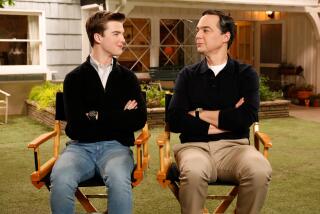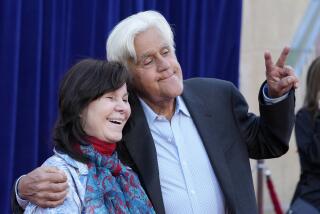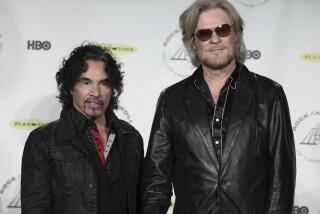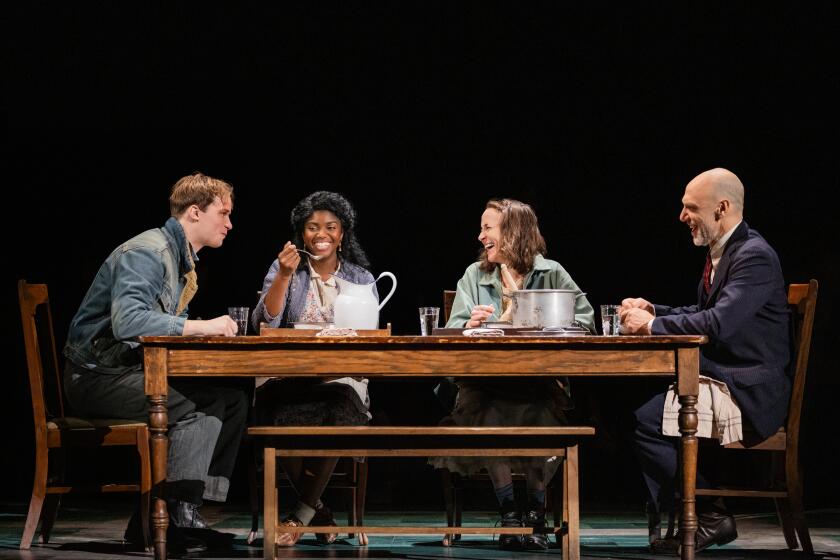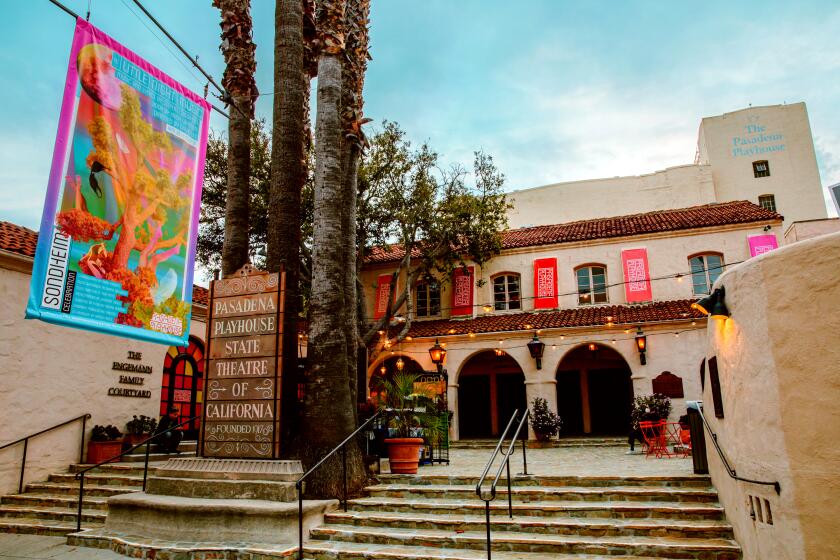Spivakov Set for Dual Roles at the Bowl
For Vladimir Spivakov, the Soviet violinist and conductor who will appear tonight and Friday at Hollywood Bowl, playing a solo in a concert he is also conducting has its points.
“In one way, it is more difficult, because I have two roles to fulfill,” Spivakov said by phone--through a translator--from his New York management company’s office. “But in another way it’s easier, because there is no conductor getting in the way.”
Spivakov, 43, will assume both duties in the first Virtuoso Series concert of the season, a Mozart program. He will conduct 40 members of the Los Angeles Philharmonic in the Divertimento in F, K. 138, the G-minor Symphony (No. 40) and the Sinfonia Concertante, K. 364, joining Philharmonic principal violist Heiichiro Ohyama as soloist in the latter. Spivakov returns Friday, as soloist only, for another Mozart piece, the Violin Concerto in D, K. 211.
He is particularly drawn to the composer, Spivakov said, because “the very first song I heard when I was a little boy was Mozart’s cradle song. I love Mozart, have done a great deal of his works and have recorded all five of the violin concertos, with the English Chamber Orchestra.
“The great Swiss pianist, Edwin Fischer, wrote that Mozart was a noble and incredible heart, which illuminates everybody.”
The concert tonight marks Spivakov’s podium debut with the Philharmonic. He had previously appeared as soloist with the orchestra at the Bowl in 1977 and the Music Center in 1979, before political events prompted a five-year freeze in U.S. and Soviet cultural relations. Music-making in the two countries differs significantly, he noted, in that “American orchestras work a great deal faster. Their method of working demands that they learn quicker because of union rules (which strictly govern rehearsal length).
“Also, in America people are trained from childhood to play in an orchestra. In the Soviet Union, everyone regards orchestra playing as inferior--they’re trained to be soloists. And then they end up in orchestras anyway.”
And what similarities might there be?
“Hopefully,” he said, a tone of dry wit evident even in his deep-voiced Russian, “they are playing the same notes.”
Spivakov said he is looking forward to playing the Sinfonia Concertante with Ohyama because of his strong interest in performing with “soloists of the American musical culture.” When he toured the United States last year with his own ensemble, the Moscow Virtuosi Chamber Orchestra, he pointed out, he recruited as soloist American trumpeter Stephen Burns, whom he had first seen perform in Finland.
Spivakov founded his group in 1979, the same year he made his conducting debut, not in the Soviet Union, but with the Chicago Symphony at the Ravinia Festival. He had turned to conducting because, he said, “I got bored with playing the same things over and over again.”
Indeed, Spivakov began his violin training at an early age. Born in the river port city of Ufa to a pianist mother and engineer father, he attended a school for musically gifted children in Leningrad, then studied under Yuri Yankelevich at the Moscow Conservatory. He launched his international solo career after numerous first-, second- and third-place finishes in prestigious competitions, including winning the 1969 Montreal Competition over noted compatriot Gidon Kremer.
There was another reason for creating the Moscow Virtuosi, Spivakov acknowledged.
“We used to have a pretty difficult life in the Soviet Union, and I wanted to make life better for my musical colleagues. So I formed an orchestra we called ‘an island of joy,’ an oasis in this otherwise difficult life.”
Nowadays, Spivakov divides his time about equally between playing violin and conducting.
“I consider myself a servant of music,” he said of his performing philosophy. “I don’t believe that music is a circus, that’s it’s there for any kind of excessive effects. But I’m not cerebral, cold--I’m capable of being moved to tears by it.”
After the Bowl concerts, the musician will perform at Ravinia, return home briefly to Moscow, then head with his orchestra to Paris to make the first of 18 records the Moscow Virtuosi will produce for RCA over the next three years.
Other plans call for a second U.S. tour with the orchestra next year, international solo appearances, a continuing association with Moscow’s Gnessin Institute, where he has been a music professor for 12 years, and the formation of his own festival in Colmar, France.
“I’d like to create and direct a festival in America, too,” Spivakov said. “But my main goal is to do what I do well.”
More to Read
The biggest entertainment stories
Get our big stories about Hollywood, film, television, music, arts, culture and more right in your inbox as soon as they publish.
You may occasionally receive promotional content from the Los Angeles Times.
